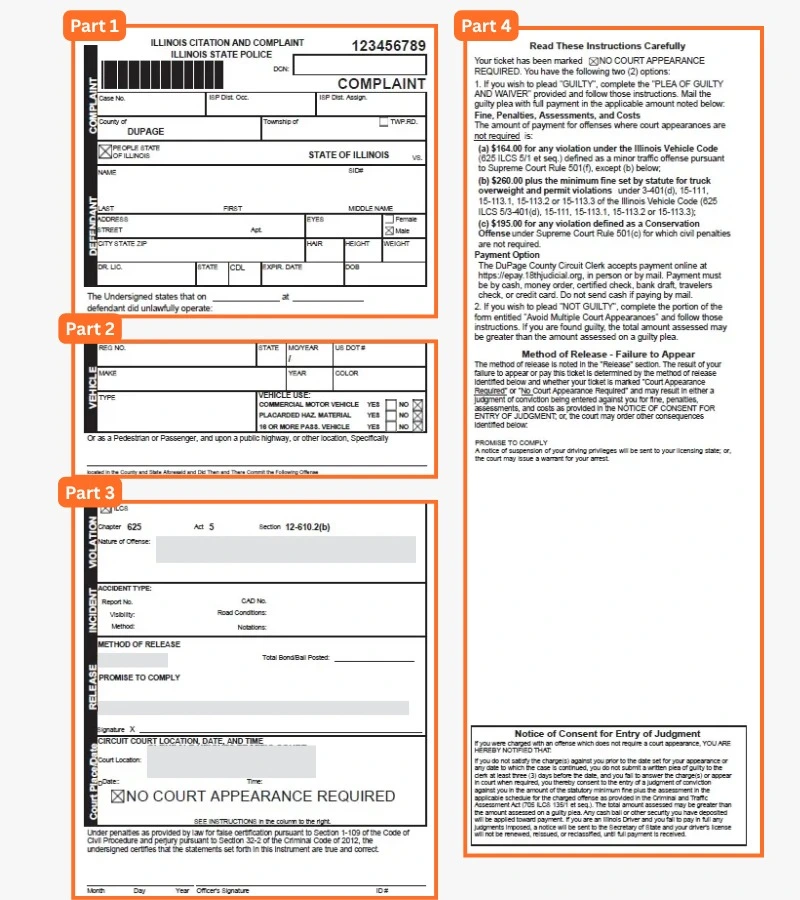Speeding is one of the most common traffic violations in Illinois. Fines typically start at around $120 and increase depending on how far over the speed limit you were going. Driving 26 mph or more above the limit is considered aggravated speeding, which can lead to higher fines, a misdemeanor charge, and possible jail time.
Illinois law bans the use of handheld devices while driving. A first offense carries a fine of $75, with fines increasing for repeat violations. These offenses can also add points to your license and impact insurance rates.
Reckless driving in Illinois is treated as a misdemeanor and involves driving with willful disregard for safety. Penalties can include fines up to $2,500, 6 points on your license, license suspension, and even jail time. If injuries occur, the charge can escalate to a felony.
Failing to stop at a red light or stop sign in Illinois usually results in a fine of around $120–$200 and 20 points on your license. Automated red-light camera tickets carry fines but don’t add points, though they can still raise insurance rates.
Not yielding to vehicles, cyclists, or pedestrians can lead to fines starting at $150 and add points to your license. Illinois enforces strict right-of-way laws, especially at crosswalks and busy intersections.
Illinois requires all drivers to carry liability insurance. Driving without it can result in fines up to $1,000, license suspension, and reinstatement fees. Repeat violations carry even harsher penalties, including longer suspensions.
To say it simply – we are your best chance at winning. Our pro lawyers have years of experience in courts, successfully slamming thousands of tickets.
We let you know if there’s a win in sight or if your ticket’s a lost cause. You can enjoy not being taken for a ride, just simple straight talk.
Submit your ticket and step back. We offer a valet-like service, taking on the mental load of your ticket, so you don’t have to.
Forget automated responses; at Flickit, you’re guaranteed support from real, empathetic humans – every step of the way. Message us and expect a call-back!
Leave the courtrooms to TV shows. Flickit handles all the real-life legal stuff, because who has time or patience for all that drama?
By keeping your license points down, you’ll avoid your insurance premiums from rising. That’s a lot of money at stake down the line.
